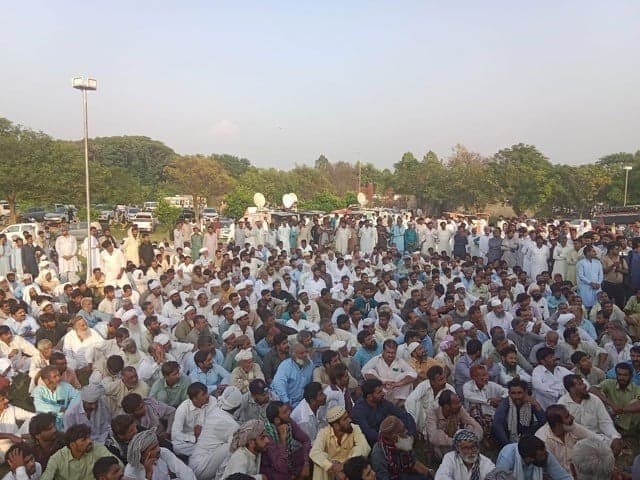The Kissan Ittehad Pakistan declared that thousands of farmers would engage in nationwide protests against the ongoing wheat crisis starting from May 10, commencing in Multan.
The plummeting wheat rates in the market, far below the support price of Rs3,900 per 40kg, have stirred discontent, with blame directed towards the decision to import wheat despite a “bumper crop” locally.
Last month, farmers resorted to protests in Lahore and several other cities, prompting the government to initiate a crackdown against the demonstrations.
Despite assurances to safeguard farmers’ interests, Prime Minister Shehbaz Sharif’s administration seems hesitant to thoroughly investigate the wheat import and take action against those responsible.
However, a cabinet committee has been established to investigate why the previous caretaker government, led by then-PM Anwar-ul-Haq Kakar, imported wheat despite sufficient domestic supply.
The Kissan Ittehad Pakistan reiterated its determination, announcing the relaunch of nationwide protests against the crisis.
The president of the alliance, Khalid Khokhar, stated, “I have reached out to numerous farmers’ groups, and we have collectively decided to protest—not for ourselves but to salvage the nation.”
Khokhar, addressing a press conference, blamed the caretaker government for causing a loss of over Rs400 billion to the national treasury by importing $1 billion worth of wheat amid a foreign exchange shortage.
Expressing the dire situation of farmers, Khokhar highlighted the immense losses incurred due to the wheat import and the subsequent repercussions on other agricultural sectors.
He criticized the lack of government regulation, particularly regarding urea prices, leading to significant financial burdens on farmers.
The Kissan Ittehad Pakistan pledged to lead nationwide protests against the government’s wheat policy, commencing from Multan on May 10, with thousands of farmers expected to participate alongside their families and livestock.
Khokhar emphasized the critical role of agriculture, stressing the need for relief measures to support farmers who are the backbone of the nation’s economy.














